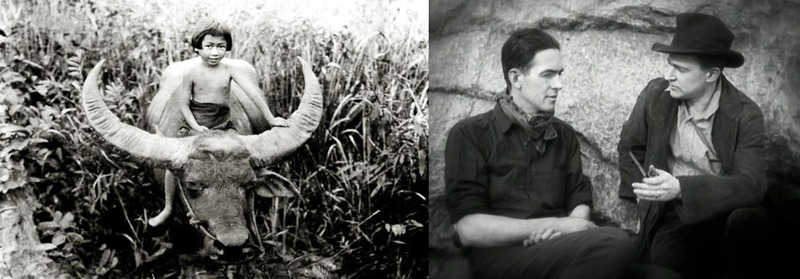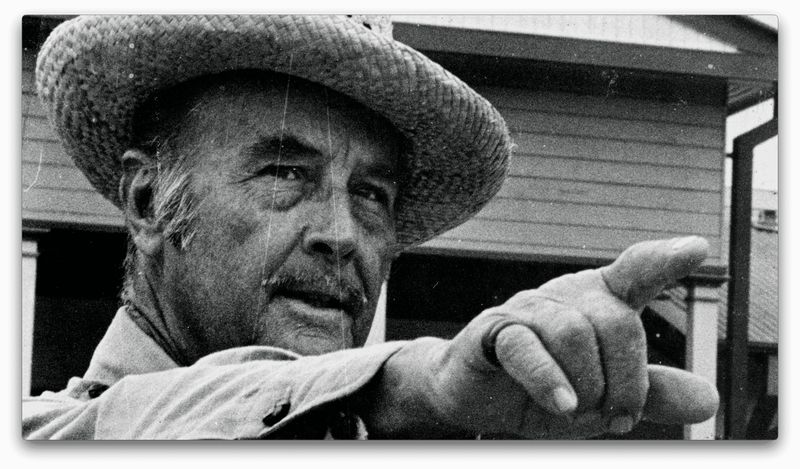
A Landmark Pair That Still Challenges Modern Viewers
MOVIE REVIEW
Grass and Chang (Grass: A Nation’s Battle for Life / Chang: A Drama of the Wilderness)
–
Genre: Documentary, Adventure
Year Released: 1925 / 1927, 2025 Kino Lorber Blu-ray
Runtime: 1h 03m / 1h 08m
Director(s): Merian C. Cooper, Ernest B. Schoedsack
Where to Watch: available now, order your copy here: www.kinolorber.com or www.amazon.com
RAVING REVIEW: There’s a unique kind of intensity that comes from watching films made during a period when cinema had no safety protocols, no creature comforts, and no separation between artist and environment. GRASS and CHANG represent two of the clearest examples of that uncompromising spirit. Together, they form a double feature that documents survival in ways modern adventure films could never replicate, because directors Merian C. Cooper and Ernest B. Schoedsack weren’t staging performances. They were standing beside people enduring very real threats—rivers that could kill, snow that froze skin on contact, animal encounters with outcomes that weren’t predetermined. These films present nature not as a backdrop, but as an active force that puts every individual on equal footing with the terrain.
GRASS follows the Bakhtiari people of Persia as they migrate across unforgiving terrain toward the life-saving fields that sustain their livestock. From the first frames, there’s an overwhelming sense that the filmmakers entered a world far more dangerous than anything they had prepared for. The Bakhtiari crossing the Karun River is still one of the most harrowing sequences to come out of silent-era filmmaking, not because the footage is sensationalized, but because the stakes feel so real. Animals disappear beneath the water, people cling to crude flotation devices, and the river itself commands more presence than many on-screen villains. Cooper and Schoedsack captured these moments with equipment that could barely withstand the elements, often shooting until their film stock physically deteriorated from exposure.
The power of GRASS lies in its clarity. The camera observes rather than editorializes, even though intertitles sometimes impose overly dramatic commentary that feels more in line with Western marketing than accuracy. Still, beneath those flourishes is a genuine attempt to preserve a way of life on film. The Bakhtiari’s perseverance becomes its own narrative, amplified by the rawness of the images. No crazy setups, no second takes—just a document of people surviving the natural world at its most merciless.
CHANG shifts locations and tone but maintains the same commitment to capturing life entwined with the wilderness. Here, the setting is the jungles of northern Siam, where a Thai family faces predators, unforgiving terrain, and the looming threat of an elephant stampede. Cooper and Schoedsack lean further into dramatization this time, crafting sequences designed to heighten the storytelling while still relying heavily on real wildlife interactions. Although some moments are embellished, the physical danger to both the filmmakers and the animals remains painfully real. Scenes with tigers, leopards, and elephants reflect an era when the boundaries between documentary and dramatization weren’t defined. Yet, the results showcase an intensity that could only come from filming in an environment that offered no second chances.
One of the most striking accomplishments of CHANG is its ability to capture scale. The filmmakers pull the camera back to reveal the jungle's enormity, then place individuals within that space to emphasize how powerless humans can be against the natural world. Even as the narrative adopts a more structured arc, the film's heart remains rooted in human fragility. The family at the center of the story isn’t presented as heroic so much as resilient—ordinary people responding to forces beyond their control.
Beyond the surface, what ties both films together is their significance. These works were foundational to Cooper and Schoedsack’s careers, laying the groundwork for what they would later apply to KING KONG. The immersive, often reckless approach to capturing danger on film became part of their signature style, influencing adventure and exploration cinema for decades. It’s hard to imagine the evolution of documentary filmmaking without acknowledging how these early efforts expanded the boundaries of what could be captured with a camera.
For those willing to engage with these films on multiple levels, they’re more than historical artifacts. They’re reminders of what cinema once demanded from those determined to capture the world around them. They also highlight the raw ambition of two filmmakers who repeatedly risked their lives—often in extreme conditions—to document survival in its purest form. GRASS and CHANG remain essential works because they accomplish something few films can: they transport viewers into environments so intense that the silence feels like part of the atmosphere itself.
Viewed together, GRASS and CHANG create a powerful meditation on endurance, ambition, and the tension between documentation and dramatization. They reveal how early filmmakers navigated ethical gray areas while pursuing images that still resonate nearly a century later. These films are not gentle; they’re confrontations with the natural world filmed by those who understood that danger couldn’t be faked. And that, even now, is what gives both works impact.
Please visit https://linktr.ee/overlyhonestr for more reviews.
You can follow me on Letterboxd, Instagram, Twitter, and YouTube. My social media accounts can also be found on most platforms by searching for 'Overly Honest Reviews'.
I’m always happy to hear from my readers; please don't hesitate to say hello or send me any questions about movies.
[photo courtesy of THE MILESTONE CINEMATHEQUE, KINO LORBER]
DISCLAIMER:
At Overly Honest Movie Reviews, we value honesty and transparency. Occasionally, we receive complimentary items for review, including DVDs, Blu-rays, CDs, Vinyl Records, Books, and more. We assure you that these arrangements do not influence our reviews, as we are committed to providing unbiased and sincere evaluations. We aim to help you make informed entertainment choices regardless of our relationship with distributors or producers.
Amazon Affiliate Links:
Additionally, this site contains Amazon affiliate links. If you purchase through these links, we may receive a commission. This affiliate arrangement does not affect our commitment to honest reviews and helps support our site. We appreciate your trust and support in navigating these links.



Average Rating